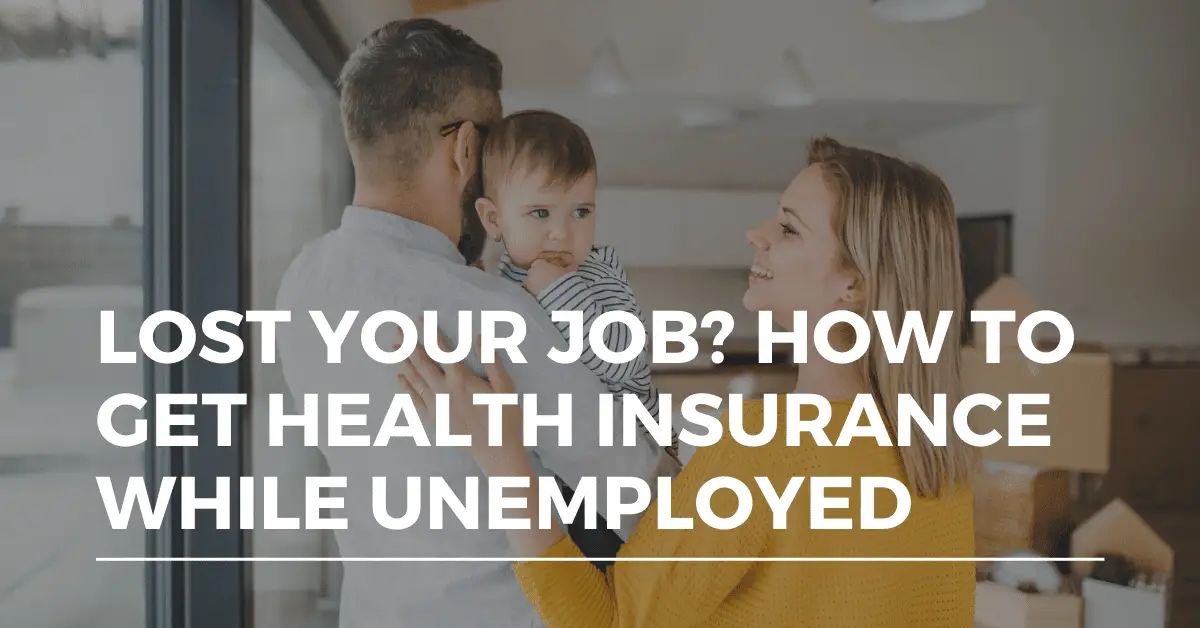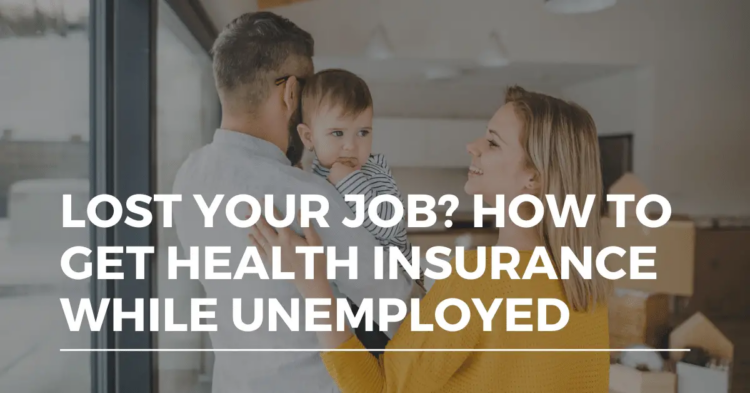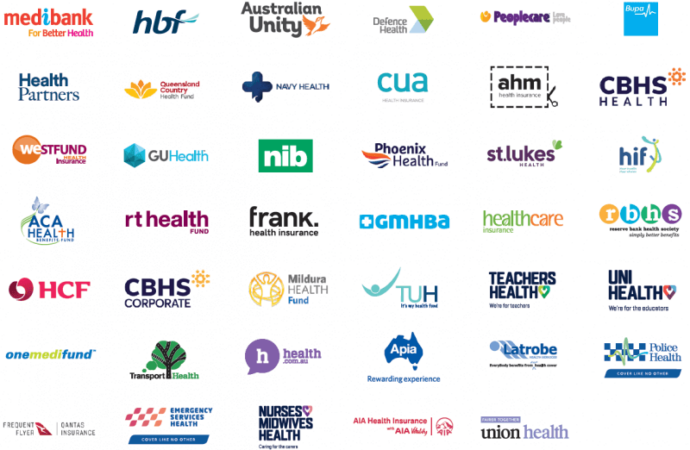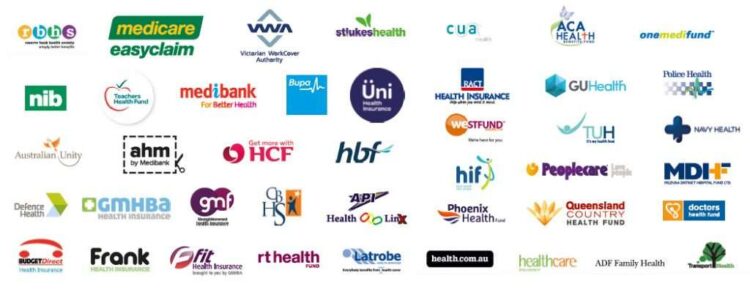
How to get health insurance when unemployed can be a daunting task, but it doesn’t have to be. Losing your job can be a stressful time, and worrying about healthcare coverage adds another layer of complexity. This guide will provide you with the information you need to navigate the options available to you and ensure you have access to the healthcare you need.
From understanding eligibility requirements for government programs to exploring individual health insurance plans through the Marketplace, this guide will walk you through the process step-by-step. We’ll also delve into financial assistance programs, short-term health insurance options, and strategies for maintaining good health while unemployed.
Understanding Eligibility and Options
Losing your job can be stressful, and navigating health insurance options adds another layer of complexity. But don’t worry, there are resources available to help you stay covered. This section will explain the eligibility requirements for various government-sponsored health insurance programs, provide an overview of individual health insurance plans, and discuss the possibility of COBRA continuation coverage.
Medicaid and CHIP Eligibility
Medicaid and the Children’s Health Insurance Program (CHIP) are government-sponsored health insurance programs that provide affordable or free coverage to low-income individuals and families.
- Medicaid eligibility is based on income and household size. Each state has its own income guidelines for Medicaid eligibility, but generally, individuals and families with incomes below a certain threshold qualify. For example, in 2023, a single person in California can earn up to $18,754 annually to qualify for Medicaid.
- CHIP is specifically designed for children from low-income families who don’t qualify for Medicaid. The income limits for CHIP are generally higher than for Medicaid, and eligibility is based on the child’s age and family income.
To determine your eligibility for Medicaid or CHIP, you can apply through your state’s Medicaid website or contact your local social services agency.
Individual Health Insurance Plans through the Marketplace
If you don’t qualify for Medicaid or CHIP, you can purchase individual health insurance plans through the Health Insurance Marketplace, also known as Healthcare.gov. These plans are offered by private insurance companies and are subject to federal regulations.
- Marketplace plans offer various coverage options, including bronze, silver, gold, and platinum, with varying levels of coverage and cost-sharing.
- Financial assistance is available through the Marketplace to help lower the cost of premiums and out-of-pocket expenses. The amount of financial assistance you qualify for depends on your income and family size.
You can use the Marketplace website or contact a certified enrollment assister to compare plans and apply for coverage.
COBRA Continuation Coverage
COBRA (Consolidated Omnibus Budget Reconciliation Act) allows you to continue your employer-sponsored health insurance coverage for a limited time after losing your job.
- Eligibility: You are eligible for COBRA if you lost your job due to reasons other than gross misconduct, and your employer had 20 or more employees on the last day of the month before your job loss.
- Duration: COBRA coverage typically lasts for 18 months, but it can be extended in certain situations.
- Cost: COBRA coverage is typically more expensive than employer-sponsored coverage, as you are responsible for paying the full premium, including the employer’s contribution.
You can apply for COBRA coverage through your former employer’s human resources department.
Navigating the Marketplace

The Health Insurance Marketplace, also known as Healthcare.gov, is a platform that allows individuals to compare and enroll in health insurance plans. It’s a one-stop shop for finding affordable coverage that meets your needs.
Understanding the Enrollment Process
The enrollment process on the Marketplace is designed to be user-friendly. You’ll be guided through a series of steps to determine your eligibility and find the best plan for you.
- Create an Account: Start by creating an account on Healthcare.gov. You’ll need basic information, such as your name, address, and Social Security number.
- Provide Information: You’ll be asked to provide information about your income, household size, and any dependents. This helps determine your eligibility for financial assistance.
- Compare Plans: The Marketplace will display a list of plans available in your area. You can filter and sort plans based on factors like premium, deductible, and coverage.
- Select a Plan: Once you’ve found a plan that meets your needs, you can select it and enroll. You’ll typically have a specific enrollment period to sign up for coverage.
- Pay Your Premium: You can pay your premium monthly through the Marketplace. You may be eligible for financial assistance to help offset the cost of your premium.
Factors to Consider When Selecting a Plan
When choosing a health insurance plan, it’s important to consider various factors that will impact your coverage and costs.
| Factor | Description |
|---|---|
| Coverage Levels | Health insurance plans are categorized by coverage levels, such as bronze, silver, gold, and platinum. Bronze plans have the lowest premiums but higher out-of-pocket costs, while platinum plans have the highest premiums but lower out-of-pocket costs. |
| Premiums | Your monthly premium is the amount you pay for your health insurance coverage. Premiums can vary based on factors like your age, location, and health status. |
| Deductibles | Your deductible is the amount you pay out-of-pocket before your insurance starts covering medical expenses. Higher deductibles generally mean lower premiums. |
| Co-pays and Co-insurance | Co-pays are fixed amounts you pay for specific services, while co-insurance is a percentage of the cost you share with your insurance company. |
| Network | Your health insurance plan’s network includes the doctors, hospitals, and other healthcare providers that are covered by your plan. |
Resources and Tools
The Marketplace offers several resources and tools to help you compare plans and make informed decisions.
- Plan Finder: This tool allows you to search for plans based on your location, income, and other factors.
- Plan Comparison Tool: You can use this tool to compare the features and costs of different plans side-by-side.
- Health Insurance Navigator: You can contact a health insurance navigator for personalized assistance with the enrollment process.
Financial Considerations

Losing your job can be stressful, and managing your finances, including healthcare costs, can add to the burden. Fortunately, several financial assistance programs and tax benefits are available to help you afford health insurance during unemployment.
Financial Assistance Programs, How to get health insurance when unemployed
Financial assistance programs can help you pay for health insurance premiums, making coverage more affordable. These programs are often income-based, meaning your eligibility depends on your financial situation.
- Medicaid: This government-funded program provides health insurance to low-income individuals and families. Eligibility requirements vary by state, but generally, you must meet income and asset limits.
- CHIP (Children’s Health Insurance Program): This program provides health insurance to children from low-income families. Eligibility requirements are based on family income and size.
- Cost-Sharing Reductions: The Affordable Care Act (ACA) offers cost-sharing reductions to lower out-of-pocket expenses for individuals with lower incomes. These reductions can help you pay for deductibles, copayments, and coinsurance.
Tax Credits and Subsidies
The Marketplace offers tax credits and subsidies to help individuals afford health insurance premiums. These credits are based on your income and family size.
- Premium Tax Credits: These credits are available to individuals and families who purchase health insurance through the Marketplace. The amount of the credit is based on your income and the cost of the plan you choose.
- Cost-Sharing Reductions: These subsidies can help lower your out-of-pocket costs for deductibles, copayments, and coinsurance.
To be eligible for tax credits and subsidies, you must purchase health insurance through the Marketplace.
Budgeting and Managing Healthcare Expenses
Even with financial assistance, managing healthcare expenses during unemployment can be challenging. Creating a budget and taking steps to reduce your costs can help you stay on top of your finances.
- Create a Budget: Track your income and expenses to understand where your money is going. This will help you identify areas where you can cut back.
- Negotiate Medical Bills: Contact your healthcare providers and insurance company to negotiate lower bills or payment plans.
- Shop for Generic Medications: Generic medications often cost less than brand-name drugs and are just as effective.
- Utilize Preventive Care: Regular checkups and screenings can help prevent more expensive health problems in the future.
Short-Term Health Insurance Options
Short-term health insurance plans offer coverage for a limited period, typically ranging from one to twelve months. They can be a viable option for individuals who need temporary coverage, such as those between jobs or waiting for open enrollment in a traditional health insurance plan. However, it’s crucial to understand the limitations and differences between short-term plans and traditional health insurance before making a decision.
Short-Term Health Insurance Overview
Short-term health insurance plans are designed to provide temporary coverage for individuals who need health insurance for a limited period. They are often less expensive than traditional health insurance plans, but they also have several limitations. For instance, short-term plans may not cover pre-existing conditions, essential health benefits, or preventive care services. They may also have lower coverage limits and higher deductibles.
Comparing Short-Term Plans to Traditional Health Insurance
Short-term health insurance plans differ significantly from traditional health insurance plans in several key areas.
Benefits of Short-Term Health Insurance
- Lower Premiums: Short-term health insurance plans generally have lower premiums compared to traditional health insurance plans. This can be a significant advantage for individuals on a tight budget.
- Flexibility: Short-term plans offer flexibility in terms of coverage duration, allowing individuals to choose a plan that suits their specific needs.
- Simpler Application Process: The application process for short-term health insurance plans is often simpler and faster than for traditional health insurance plans.
Drawbacks of Short-Term Health Insurance
- Limited Coverage: Short-term health insurance plans typically have limited coverage compared to traditional health insurance plans. They may not cover pre-existing conditions, essential health benefits, or preventive care services.
- Higher Deductibles and Out-of-Pocket Costs: Short-term health insurance plans often have higher deductibles and out-of-pocket costs than traditional plans. This means you may have to pay more out of pocket before your insurance coverage kicks in.
- Limited Duration: Short-term health insurance plans are typically only available for a limited period, ranging from one to twelve months. This can be a disadvantage if you need coverage for a longer period.
- Renewability Restrictions: Short-term health insurance plans may not be renewable, or they may have restrictions on renewability. This means you may have difficulty obtaining coverage after your current plan expires.
- Pre-Existing Conditions: Short-term health insurance plans may not cover pre-existing conditions. This means that if you have a health condition that you were diagnosed with before enrolling in the plan, it may not be covered.
Key Features and Considerations for Short-Term Health Insurance
| Feature | Description | Considerations |
|---|---|---|
| Coverage Period | Short-term health insurance plans typically provide coverage for a limited period, ranging from one to twelve months. | Consider how long you need coverage for. Short-term plans may not be suitable if you need coverage for an extended period. |
| Coverage Limits | Short-term health insurance plans may have lower coverage limits than traditional health insurance plans. | Consider your healthcare needs and whether the coverage limits of a short-term plan will be sufficient. |
| Deductibles and Out-of-Pocket Costs | Short-term health insurance plans often have higher deductibles and out-of-pocket costs than traditional plans. | Consider your financial situation and whether you can afford the deductibles and out-of-pocket costs associated with a short-term plan. |
| Pre-Existing Conditions | Short-term health insurance plans may not cover pre-existing conditions. | Consider whether you have any pre-existing conditions and whether they will be covered by a short-term plan. |
| Essential Health Benefits | Short-term health insurance plans may not cover all essential health benefits, such as maternity care, mental health services, and prescription drugs. | Consider your healthcare needs and whether the essential health benefits offered by a short-term plan are sufficient. |
| Renewability | Short-term health insurance plans may not be renewable, or they may have restrictions on renewability. | Consider whether you will be able to renew your short-term plan after it expires. |
Maintaining Health and Wellness

Being unemployed can be stressful, and it’s important to prioritize your health and well-being during this time. Taking care of your physical and mental health can help you manage stress, cope with challenges, and prepare for your job search.
Affordable Healthcare Access
While you may not have employer-sponsored health insurance, there are still ways to access affordable healthcare services.
- Community Health Centers: These centers offer low-cost or sliding-scale healthcare services to individuals and families regardless of their insurance status. They provide a wide range of services, including primary care, dental care, and mental health services.
- Free or Low-Cost Clinics: Many communities have free or low-cost clinics that offer basic healthcare services, such as screenings, vaccinations, and treatment for minor illnesses.
- Telehealth Options: Telehealth services allow you to consult with doctors and healthcare providers virtually, often at a lower cost than traditional in-person appointments. Many telehealth platforms offer services for a variety of health concerns, including mental health, primary care, and chronic disease management.
Preventive Care and Regular Checkups
It’s essential to continue with preventive care and regular checkups, even when you’re unemployed. This includes:
- Annual Physicals: Annual physicals help to identify any health problems early on, when they are easier to treat.
- Vaccinations: Staying up-to-date on vaccinations helps protect you from preventable diseases.
- Screenings: Regular screenings, such as mammograms, colonoscopies, and blood pressure checks, can help detect health problems early.
Ultimate Conclusion
Being unemployed doesn’t mean you have to sacrifice your health. By understanding your options and utilizing available resources, you can secure affordable health insurance and maintain your well-being. Remember, it’s important to stay proactive and informed about your healthcare needs. Don’t hesitate to seek guidance from healthcare professionals or insurance experts to ensure you make the best decisions for your unique situation.
Frequently Asked Questions: How To Get Health Insurance When Unemployed
What if I can’t afford the premiums for a health insurance plan?
The Affordable Care Act provides financial assistance in the form of tax credits and subsidies to help individuals afford health insurance premiums. The amount of financial assistance you qualify for depends on your income and family size. You can explore your eligibility for these programs through the Marketplace website or by contacting a health insurance broker.
Can I still use my employer-sponsored health insurance after I lose my job?
In some cases, you may be eligible for COBRA continuation coverage, which allows you to continue your employer-sponsored health insurance for a limited time, typically 18 months, after you lose your job. However, COBRA coverage is usually more expensive than employer-sponsored coverage, so it’s important to weigh the costs and benefits before enrolling.
What are the limitations of short-term health insurance?
Short-term health insurance plans are typically less comprehensive than traditional health insurance plans. They may have lower premiums, but they often have higher deductibles and copayments. Additionally, they may not cover pre-existing conditions and may have limited coverage for essential health benefits.





